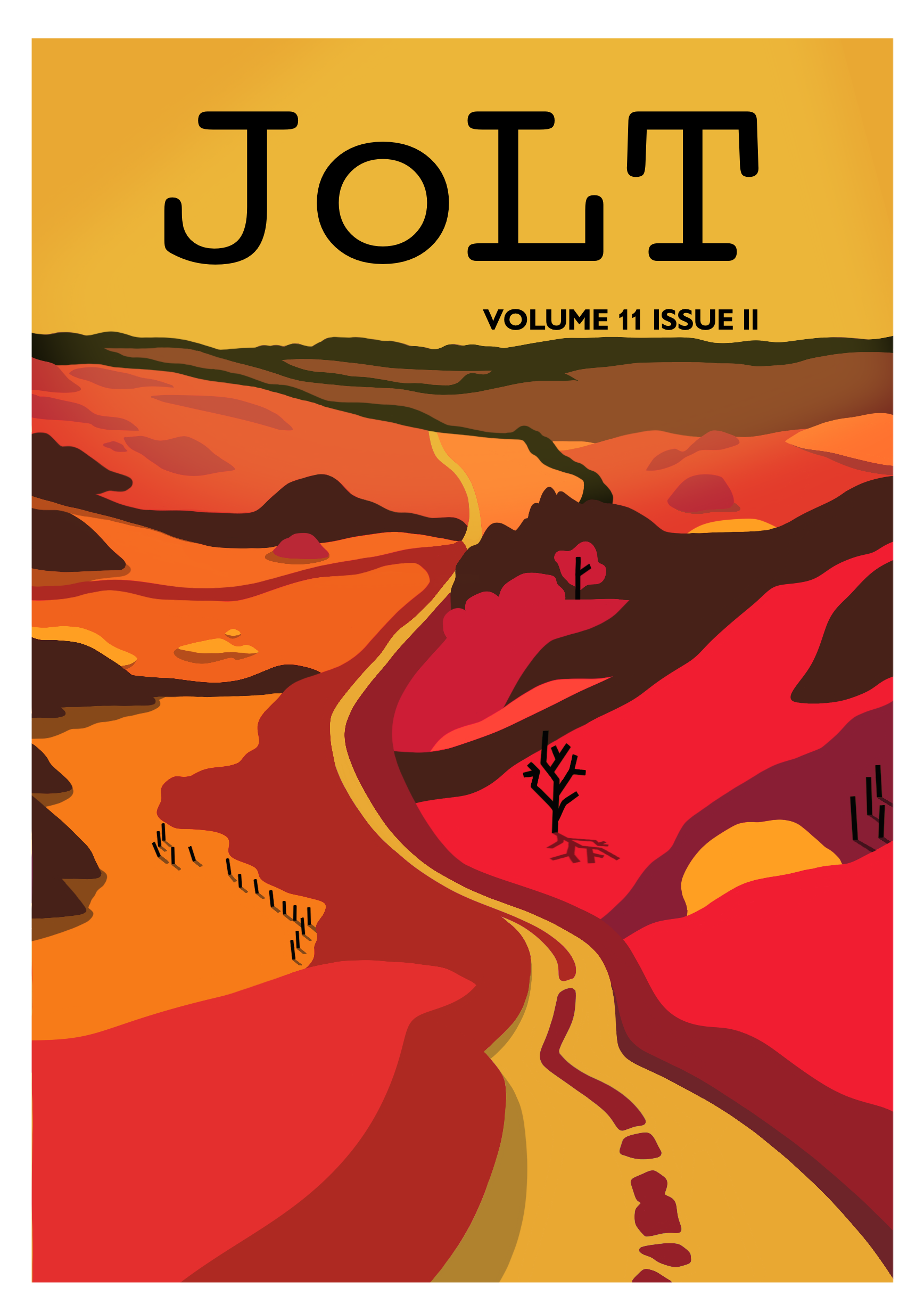April 4 marked the last official launch of the Trinity Journal of Literary Translation. (JoLT) for the 2022-2023 academic year. The launch was hosted downstairs at Kennedy’s Pub on Westland Row to celebrate the second issue of the journal’s eleventh volume, following a string of successes since the publication started just over a decade ago. This issue was the last one under the supervision of the current editorial staff and Editor-in-Chief Anastasia Fedosova, who worked diligently to establish new frontiers for future issues of JoLT. The most recent issue of JoLT was based on the theme of “roads,” which Fedosova and the editorial team decided based on an essay by British poet David Jones, The Viae: The Roman Roads in Britain. The introduction to issue two describes the “importance of roads from a historical and archaeological perspective”, how roads record and layer the lives of those who travel down them.
Beyond the travelling aspect of roads, taking us from one place to another, we also find a sense of beginnings and ends. The road becomes a construction for the newest issue of JoLT, a metaphor for past histories and new eras. Fedosova writes in the introduction: “I wanted to encourage a kind of archeological view of translation, as a process in which the translator’s voice, experience, and history are layered unto that of the author.” The trodden path of the work itself is retrodden through the experience of those who translate it and, as Ezra Pound said, “make it new.”
“The launch itself hosted around 45 people, students, contributors, and others. Fedosova stood in front of the dropdown screen and offered a short introduction, in which she described her thanks and appreciation to all the contributors to issue two.”
The launch itself hosted around 45 people: students, contributors, and others. Fedosova stood in front of the dropdown screen and offered a short introductory speech, in which she expressed her thanks and appreciation to all the contributors of issue two. She invited the contributors to come forward and accept Kennedy’s vouchers before a reading of the work began, featuring both new and returning authors from the last issue. In addition to the new translations, works of art also appeared in this issue. In particular, work by returning artist Penny Stuart, who recently hosted an exhibition at Sweny’s Pharmacy about James Joyce’s The Dead, appeared alongside work by new contributing artists such as Naemi Dehde, who presented her work titled Dublin at the launch. Dehde described her first thought when she heard the theme for this issue: “My first thought was of the Dublin buses.”
Her work poses as a kind of spatial map of the Dublin bus system, using the colours and geographies we’ve all grown familiar with over our time navigating the city. Neon illuminations in the work add to the effect of the city’s paths and natural trails. Dehde’s interpretation was just one of the ways artists explored the theme of “Roads.” The JoLT editorial team focused on positive change this academic year and revolutionised the magazine in terms of scope. In February, JoLT announced a radical new direction for accepting submissions, encouraging contributors to explore new and even unorthodox approaches to translation. Previous issues had contributions that approached translation quite directly and literally, but Fedosova, in an interview with Trinity News, stated that the future of JoLT lies in the curation of more experimental methods.
“The editorial team put this into practice and created an environment in which they could encourage contributors to think outside the box.”
The editorial team put this into practice and created an environment in which they could encourage contributors to think outside the box. JoLT hosted a literary translation workshop, Fall Down the Rabbit Hole, on March 28 with the Dublin University Modern Languages Society. The event was a massive success with approximately 20 people in attendance working on new translations. Among these students were a variety of contributors to issue two. Fedosova said, “Some had no prior experience in translation, others had some training,” but everyone was very welcome and the workshop paved the way for future collaborations with the DU Modern Languages Society. Now JoLT turns its attention to the future committee. Applications for the editorial staff are currently open and will remain open until May 2, following an extension.
The guidelines for applying are available at the JoLT website or at the link in their Instagram bio. In a note of gratitude on Instagram, Fedosova writes, “We produced two beautiful issues, making an invaluable contribution to the field of Literary Translation Studies and shaping the medium for the international, multilingual, and intercultural voices of Trinity and beyond.”
For more information about the Trinity Journal of Literary Translation, you can contact the team via email at; [email protected]. Alternatively, you can find them on Facebook, Instagram, or Twitter. Check out their website to see a digital copy of the recent issue or submit to the next one at trinityjolt.org.






